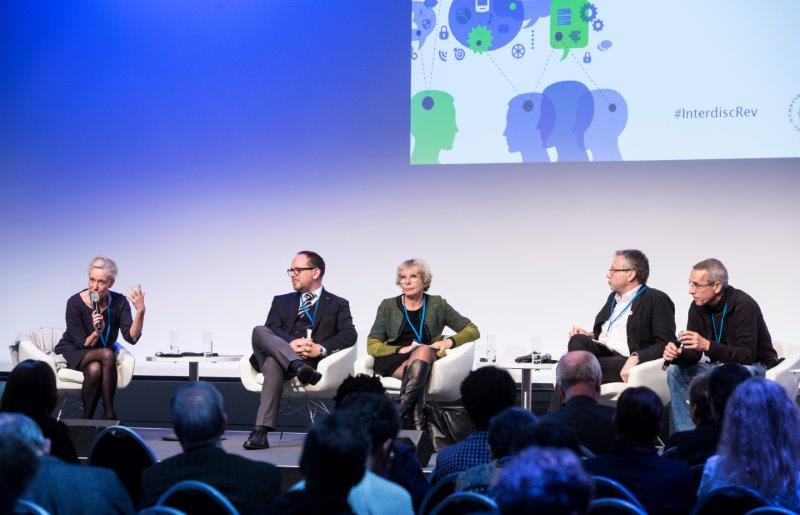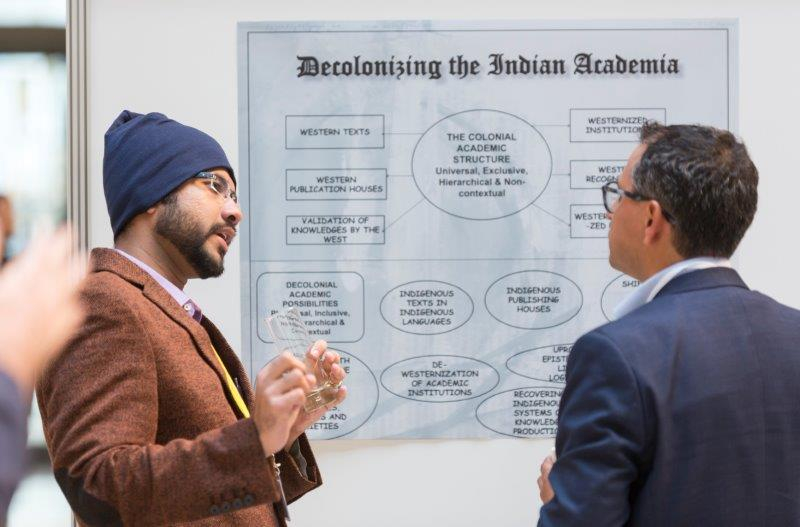Concepts and Challenges of Interdisciplinarity
At the symposium "Interdisciplinarity Revisited", 150 scientists from all over the world discussed the added value of interdisciplinary approaches in research and teaching.
The international symposium "Interdisciplinarity Revisited", which took place on October 3-4 at the Humboldt Forum in Berlin, proved that interdisciplinarity is far more than just a buzzword and that dealing with the diversity of convictions and concepts really pays off. In seven sessions, academics from different backgrounds presented their experiences in an interdisciplinary context, their wishes and critical concerns, followed by lively debates with the plenary. Michael Crow, Arizona State University, USA, described his idea of a "new American university", in which the disciplinary structure has been broken down in favor of thematically oriented schools, e.g. a School of Sustainability, and called for a "postdisciplinary awakening". Rudolf Stichweh, University of Bonn, on the other hand, drew attention to the co-constitutive character of disciplinarity and interdisciplinarity, which would be inconceivable without each other. Uskali Mäki, University of Helsinki, Finland, raised a warning finger against a too enthusiastic attitude towards interdisciplinarity. He pointed out that there might be the danger of a loss of identity for the disciplines, but he also warned against gambling away the advantages of interdisciplinarity through too narrow administrative guidelines.

In the session "Global Issues as Challenges for Interdisciplinary Research" it became clear how important the concept of interdisciplinary cooperation already is, especially in the fields of environmental research and digitalisation, and how important it will be in the future for research-based solutions. Sandra Bell, University of Durham, UK, pointed out that it will not work without high-bred scholars with scientific and sociological skills. And Christine L. Borgmann, University of California, USA, stressed that not only open access to data for all fields of research is necessary, but also agreement on a common understanding of the respective data.

The symposium organised by the Volkswagen Foundation, the Humboldt University of Berlin and the Stiftung Humboldt Forum im Berliner Schloss was also attended by 23 young researchers from all over the world who presented their interdisciplinary dissertation projects in short presentations and posters: They came from Egypt, India, Bhutan and South Africa, among others.
A detailed conference report is planned and will be available soon on our event reports web page.

